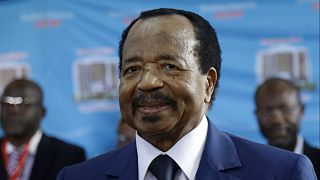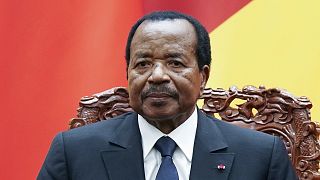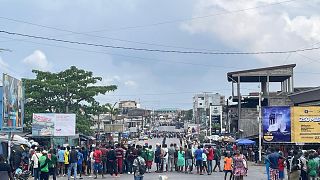Cameroon
Most schools in Buea, the capital of Cameroon’s Southwest region remain closed, as a boycott called by activists took effect.
Monday (September 4) was the first day of reopening of school for the 2017-2018 academic year after the August holiday, but most parents kept their children at home, fearing for their security.
Tensions remain high in the mainly Anglophone region of Cameroon since last October, after Cameroonian forces cracked down on protests in the English-speaking region, beating and arresting protesters, some of whom face the death penalty in military courts.
Activists accuse Cameroon’s government of silencing growing calls for either federalism or secession, by the two English-speaking regions of the country, who say they are being marginalised and discriminated against.
There was a heavy police presence at the handful of schools that opened, with local authorities saying they wanted to ensure that protesters do not attack students and the school buildings.
At a bilingual grammar school in Buea, Anglophone students did not attend school today but a small number of Francophone students were seen being taught.
“Schools boycott is the only peaceful weapon than we have to address the issues at stake because the issues are very fundamental and critical to the lives of every citizen of this nation especially citizens of Southern Cameroon. And if we don’t use this weapon we shall live to fight a war one day,” said one activist who did not want his identity revealed.
The unrest has exposed national divisions between the regions of Cameroon that were historically colonised by the French and the British. It has also been a lightening rod for opposition to President Paul Biya’s 35-year rule.
On Friday (September 01), dozens of activists from Cameroon’s English-speaking community were freed from jail, as the mainly French-speaking nation’s president Biya moved to ease months of tension in its minority regions.
Biya on Wednesday (August 30) ordered a military court to drop its prosecution of the detainees, who were arrested following protests launched late last year by anglophones demanding equal treatment.
Some have criticised the boycott and protest by the anglophone region, calling for political dialogue to solve the crisis.
“The challenge is for us to get our politics right. We have failed to get our politics right. We have failed to press the necessary pressure points. You know political pressure points for us to see on the table and get the dialogue going. Unfortunately the complaints of Anglophone Cameroonians have been not only short changed, but have been franchised to the streets. In such a way that the kind of noise and kind of information we get is what you get from street thugs,” said Ernest Molou, a professor at the University of Buea.
Some students say they are worried about their future, saying they are already behind the academic year since the crisis begun last year.
“It has affected me a lot because I have lost a whole year. “I was supposed to be a university student today but am still in high school just because I couldn’t finish my year in high school, so it is a very big challenge for me seeing that today schools are not resuming effectively. Am very worried, I don’t know the government has to do something very quick for us to resume school. Because those of us who don’t have means to go to francophone areas it a very big challenge to stay at home,” said high school student Atemken Cyril.
Activists say that they will not call off the boycott, until the government acts on their grievances.












11:14
Rwanda Walks Away: what’s behind the Central Africa rift? [Business Africa]
00:57
Nigeria crisis: 20,000 flee Marte after militant attacks
Go to video
Cameroon soccer great Emmanuel Kundé dies at age 68
Go to video
Alexander-Arnold confirms departure from Liverpool after 20 years
00:49
Teachers strike shuts down schools across Cameroon
Go to video
The Okwelians: Unlocking New Economic Paths for Cameroon [Business Africa]